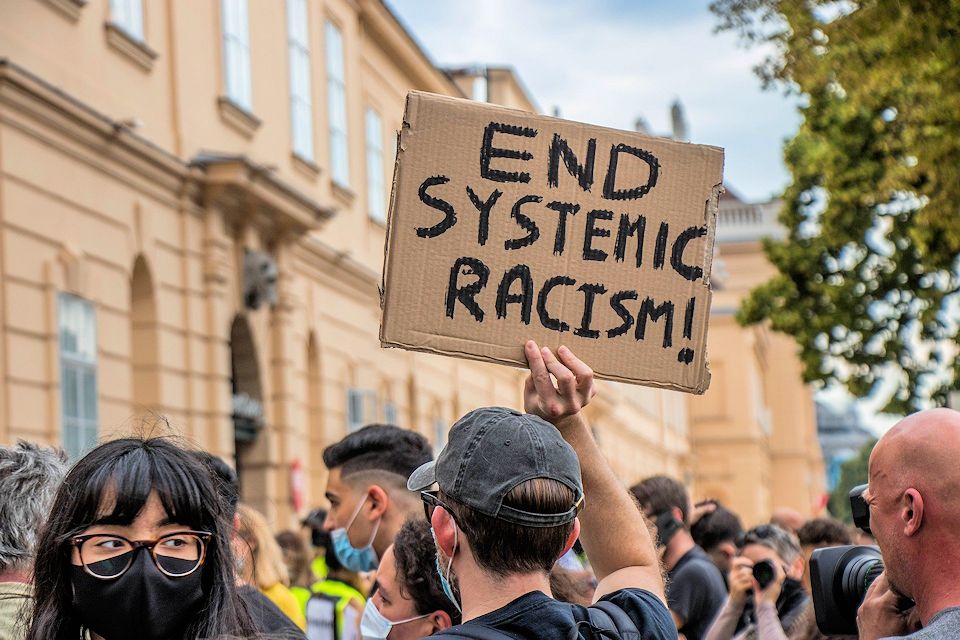The Rev. John Boley suggests that recognizing the grief behind the anger of protests happening across the U.S. may provide new understanding and the way forward for change.
JOHN BOLEY
Clergy Assistant to Bishop, Michigan Area
In his blog last week, Benton Heisler offered this encouragement, “We must own our personal antiracism work while, at the same time, be part of the collective work to be done as congregations and society.” Further, as individuals and as a Christian community, we must “own the disaster of racism in our distinct context. Speak, write, vote, advocate, build relationships, pray, and act so that the world is indeed transformed.”
I would like to piggyback on Benton’s blog to hone in on the role and character of anger as part of the context for all of the protests happening now and for the important work that Benton suggests.
I recently heard one of our pastors offer a sermon in which he concisely explained both Jesus’ compassion and his advocacy. Summarizing: When Jesus was dealing with the poor, the outcast, the last and the lost and the least, and the oppressed, he always showed compassion and offered healing words and actions. When he faced the oppressive systems, that is when he advocated for major change – such as when he threw the money-changers out of the Temple for being a part of a system which was intended to and succeeded in keeping the wealthy and powerful on top, and the oppressed and poor on the bottom.
The Gospels are crystal clear about this – Jesus had righteous indignation for corrupt and oppressive systems, and he had compassion and healing for the downtrodden.
Throughout the last 1,700 years of the Christian faith, there have been massive efforts to turn that Gospel truth upside-down – to have Jesus justify and be in solidarity with the oppressors, and be opposed to and condemn the oppressed. These efforts have very often succeeded, so even to this day in our racist society, Jesus is claimed by the oppressive white establishment, which in turn claims that Jesus condemns the oppressed, the poor, and people of color. This attitude then denies that there is any systemic evil or structural discrimination. If ever there has been a perversion of Jesus’ words and actions, it is this, and virtually all of us who have white privilege have some measure of culpability.
So what is the role of anger in this? In the current protests stemming from the continual murder of unarmed blacks by police, many in the dominant white community don’t understand the anger that exists, which triggers the protests and is so evident in them. So often in our Christian faith, we are told and have come to believe that anger is always a bad thing – that it eats at the soul and is contrary to the inner peace for which we strive. Certainly, there is some truth in this, but where should anger be placed? Is there room for righteous indignation while still striving for inner peace and tranquility?
Borrowing heavily from the recent Richard Rohr daily meditations from the Center for Action and Contemplation – there is a “theology of anger,” which can help us toward the right perspective. A theology of anger assumes that anger as a response to injustice is spiritually healthy. In his blog for Tuesday, June 9th, Rohr starts by quoting Gandhi – I have learned to use my anger for good — without it, we would not be motivated to rise to a challenge. It is an energy that compels us to define what is just and unjust.
Rohr and his colleagues go on to provide three ways a theology of anger can contribute to spiritual restoration:
First, a theology of anger invites us to wake up from the hypnotic influences of unrelenting oppression so that individuals and communities can shake off the shackles of denial, resignation, and nihilism. (Emphasis added).
Second, a theology of anger can help us construct healthy boundaries.
And third, the healthy expression of righteous anger can help us translate communal despair into compassionate action and justice-seeking.
To be sure, this anger should never spill over into violence. But Rohr goes on to suggest that much of this kind of anger is actually based in grief – grief over oppression, grief over loss, and grief over destroyed hope.
Perhaps when we engage in our personal and communal spiritual work, we can begin with the grief that is at the heart of life for people of color, who have little hope for a better life. They have lost so many loved ones to homicide, mass incarceration, and pandemic. Because of this grief, they have a difficult time hearing and accepting the words and promises of even the most well-meaning people of privilege.
After we recognize our grief and the grief of the downtrodden, then perhaps we can place the anger that is so evident right now in proper understanding. Maybe we can see it in context. Perhaps we can use it to make real systemic change. Perhaps this anger is not a curse which is contrary to the will of God for our inner spiritual lives – maybe we can see it as a gift from God for which Jesus is our example.
Last Updated on June 22, 2020

